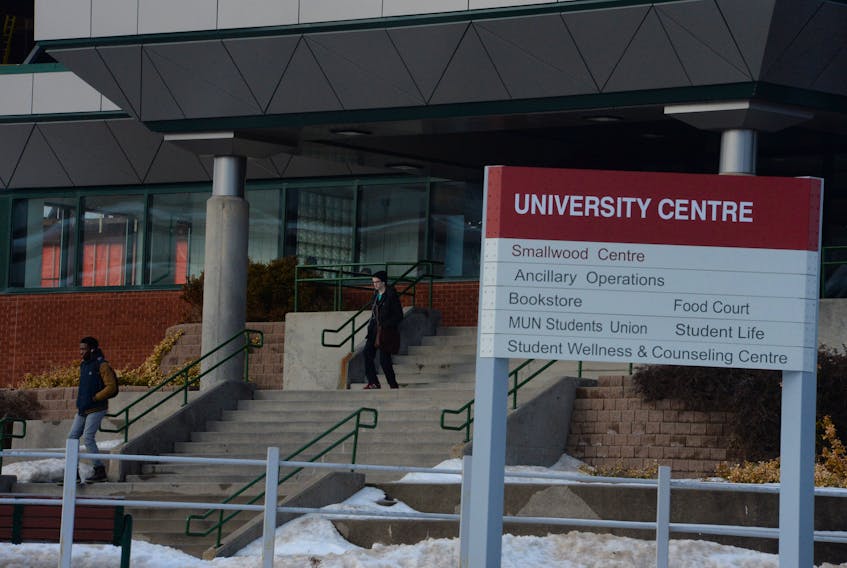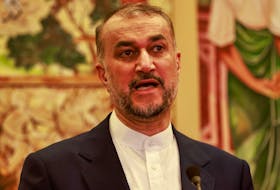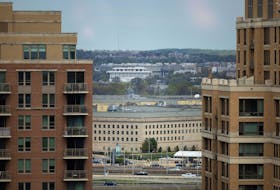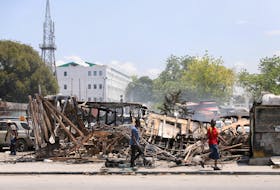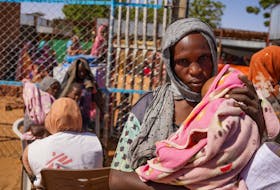When the Memorial University of Newfoundland (MUN) school of social work looks for its next class of students, in bachelor and master degree programs, it looks for a diverse group of individuals.
The Telegram was recently approached by someone suggesting more be shared on the use of self-identification and designated seats at the school.
They provided response to an access to information request, stating 31 of 112 applicants to the bachelor of social work programs for 2017-18 self-identified as: a person of First Nations, Inuit, Métis or blended ancestry; financially disadvantaged; living with a disability; a member of the LGBTQ2 community; a member of a visible minority; or “other” (the option of a write-in on their application indicating a distinct personal experience or background).
It is not uncommon for students choosing to self-identify to check more than one box, as applicable. And as for what the “other” might be? In recent years, a student has noted they were a teenage mother, for example, while another noted they live with mental illness (the applicants are not identified in information released).
Of the 31 self-identifying, 15 were ultimately ineligible for a space in the program, as they did not meet all admission requirements. The others were ultimately offered a seat, although there was no guarantee they would be. One prospective student declined.
In a statement, the dean of the school of social work, Donna Hardy Cox, said there are designated seats in both the bachelor and master programs for Indigenous students and students self-identifying from various equity groups, as part of educational equity initiatives.
“This is one way to address systemic barriers to social work education,” she said.
The university calendar notes having a diversity of experiences and backgrounds enriches the school’s teaching, research and scholarship. The move is also to help overcome institutional processes, and cultural and racial differences that have historically presented students with barriers to learning.
Designated spaces
The option of self-identification for consideration in an application is not unique to the school of social work, although that school stands out in the options included directly on its applications.
Entrance to Memorial University of Newfoundland includes an application offering the option for anyone of First Nations, Métis or Inuit ancestry to note as much.
For a prefix to your legal name, there is an “Mx” option, as opposed to “Mr” or “Ms.” And the application captures gender in a line, but offers “another gender identity” as an option, in addition to just “male” and “female.”
You can volunteer additional information by, say, including a military rank, or professional title.
However, beyond the school of social work, the main interest is students self-identifying as Indigenous, given designated seats exist for Indigenous students.
In 2009, the university’s Presidential Task Force on Aboriginal Initiatives found MUN could do more to encourage Indigenous students to apply to the university, enter and thrive.
“There is considerable potential for increased enrolment, with corresponding benefits to the intellectual environment on the university,” it stated, noting the same potential exists for research and added benefit to communities.
Within the 22 recommendations, one was for a closer look at the faculty of medicine’s existing practice of designating seats for interested, qualified Indigenous students.
“Through the office of the vice-president (academic) in consultation with deans and directors the university should develop an inclusive institutional stance towards reserving places for qualified aboriginal students in all faculties and schools. The faculty of medicine offers an attractive model,” it stated.
Students not meeting program requirements are not offered a space. The designated seats existing today do not lower admissions standards.
“It tells aboriginal students that we want you in our program and that we want to be inclusive,” said Catharyn Andersen, special adviser to the president on aboriginal affairs.
As for who is ticking the boxes, it’s well understood that self-identification is not an all-inclusive approach and does not represent the entire student population, given students will choose in some cases not to self-identify, or confirm their status.
“There are cases where students do not want to have this information known — that they are in a program with a designated seat — because the negative, the backlash that can go along with that,” Andersen said, adding it’s one part of a complex consideration for individuals.
“It’s very real that students face racism and discrimination in the classroom and more broadly, and this is something that we are aware of and cognizant, that some students do not want to have this information known.”
At the same time, she said, having access to education and having Indigenous people represented in all professional sectors, at all levels, is important.
Designated seats are an aid to the university’s response to the calls to action, contained in the Canadian Truth and Reconciliation Commission’s report.
Designated seats at MUN for qualified Indigenous students
Faculty of business administration: 3
Faculty of education: 3
Faculty of engineering and applied science: 3
Faculty of medicine: 3
School of human kinetics and recreation: 3
School of music: 1
School of nursing: 3 (in BN, collaborative, four-year program)
School of pharmacy: 1
School of social work: minimum 3 and up to five per cent of seats in BSW as first degree; minimum of 1 and up to five per cent of seats in BSW as second degree program; and 10 per cent of seats per year in the MSW.
Marine Institute: 5
Bachelor of fine arts, visual arts: 2 (Grenfell Campus)
Master of arts in environmental policy: 1 (Grenfell Campus)
Processes for filling designated seats can differ by school and program, and students are encouraged to refer to the university calendar for more information, as well as available scholarship opportunities.
(SOURCE: http://www.mun.ca/aboriginal_affairs/AboriginalInitiatives.php, Jan. 17, 2018.)
RELATED LINK:
MUN- Report on the presidential task for on Aboriginal initiatives (2009)

